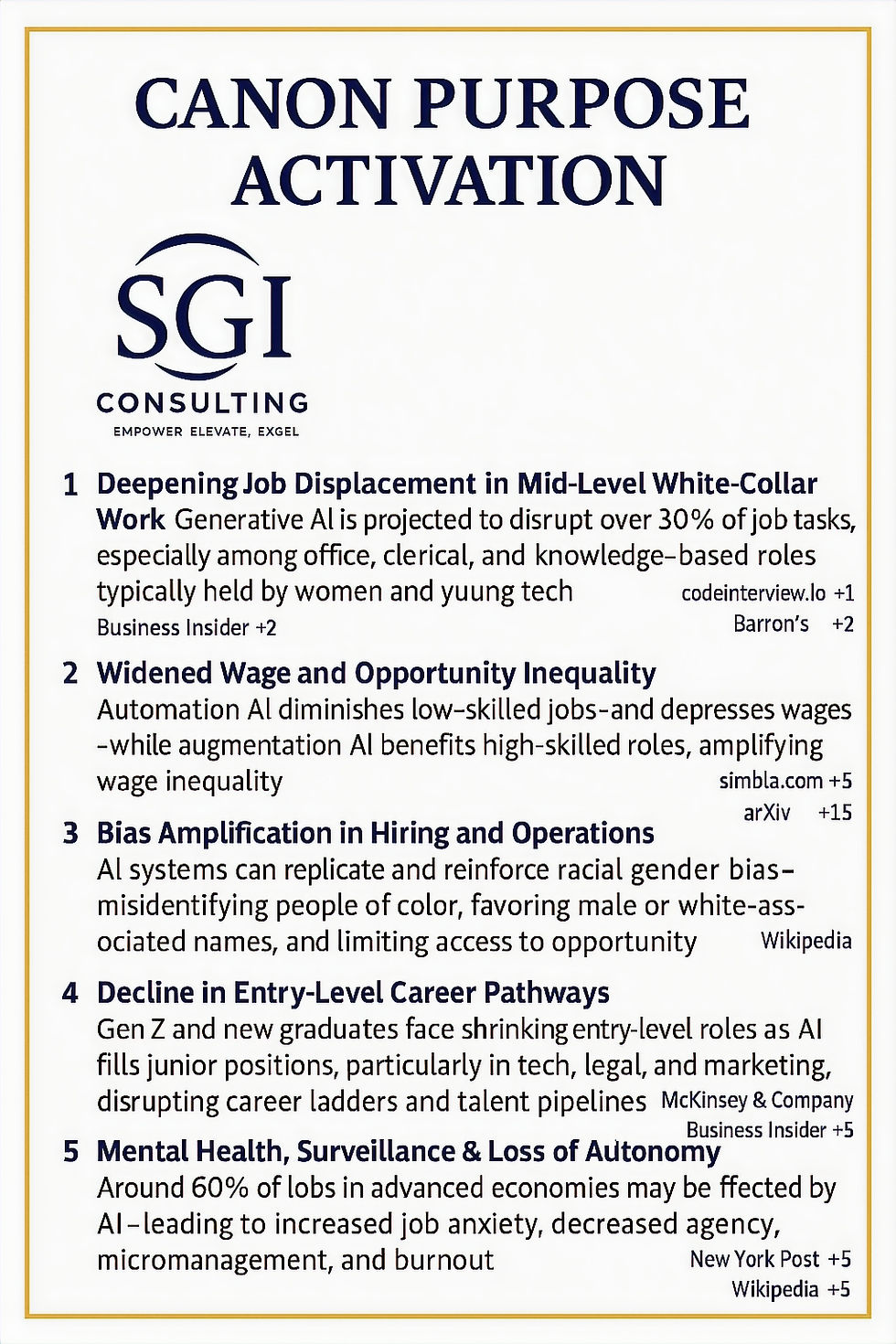⚖️ 𝐌𝐚𝐧𝐞𝐮𝐯𝐞𝐫𝐢𝐧𝐠 𝐖𝐢𝐭𝐡𝐢𝐧 𝐭𝐡𝐞 𝐎𝐫𝐠𝐚𝐧𝐢𝐳𝐚𝐭𝐢𝐨𝐧 🌐 𝐈𝐧 𝐚 𝐏𝐨𝐥𝐢𝐭𝐢𝐜𝐚𝐥𝐥𝐲 𝐂𝐡𝐚𝐫𝐠𝐞𝐝 𝐒𝐨𝐜𝐢𝐞𝐭𝐲 🗳️
- Tony Alexander

- Aug 5, 2025
- 3 min read
Updated: Aug 18, 2025

In a time when the world outside our office walls trembles with tension—headlines flaring, communities polarized, identities politicized—what happens inside our organizations cannot remain untouched. The undercurrent flows in, quiet but forceful. And it shows up in ways both subtle and sharp: unchecked behavior, coded comments, awkward silences, and doors quietly closing on opportunity.
For mid-level managers—the keepers of culture and the bridges between vision and reality—this is the frontline. And maneuvering through it isn’t just about policies or postures. It’s about courage, clarity, and a deep commitment to truth.
The Cost of Silence in the Middle
Unchecked behaviors are rarely loud. They’re often quiet, habitual, and dismissed as personality quirks or “not that serious.” But when accountability is absent, silence becomes complicity. A joke that lands wrong. A pattern of speaking over certain voices. Performance reviews that favor the familiar.
In politically charged times, people bring their whole selves to work—including their fears, their biases, and their blind spots. Mid-level managers can no longer afford to just “manage up” or “keep the peace.” They must be watchful shepherds of culture. Because when the middle turns a blind eye, the whole system falters.
True DEI Isn’t Corporate Fluff—It’s Cultural Survival
Let’s be clear: diversity, equity, and inclusion are not about checking boxes or hosting one more training to “raise awareness.” DEI is about ensuring that people are seen, safe, and supported—especially when the outside world sends them a different message.
In a charged society, people are watching to see if their leaders will flinch or stand firm. Will you address the microaggression? Will you pause the meeting when someone’s voice is drowned out? Will you make space for honesty even when it’s uncomfortable?
What Mid-Level Managers Must Do Now
1. Learn to See What’s Been Made Invisible. Start by noticing. Who speaks the most in meetings? Whose ideas get taken seriously? Who’s often left out of informal conversations? Don’t just look at what’s happening—ask why it’s happening.
2. Interrupt with Integrity. You don’t need a perfect script to call in behavior that’s out of step with your values. Say:
“I want to pause us here—let’s make sure we’re not overlooking something important.”“That comment didn’t sit right with me. Can we unpack it?”
3. Move Beyond Comfort Toward Courage. Leadership isn’t about being liked—it’s about being trusted. And trust is built when people know you’ll speak up when it counts, even if your voice shakes.
4. Anchor Your DEI Work in Humanity, Not Headlines. Don’t just react to the news cycle. Build relationships. Listen deeply. Ask your team:
“What does safety look like for you here?”“What do you need to feel valued and respected?”
5. Be the Mirror and the Megaphone. Reflect
on what’s happening with clarity and compassion. And when your team’s truths get buried under bureaucracy, use your access to speak them upward.

The Bigger Picture: This is About Legacy
Mid-level managers often underestimate their power. But you shape the day-to-day climate in ways that senior leaders rarely touch. You are the culture carriers. You are the interpreters of values. And in a politically charged society, your role is more vital than ever.
So don’t shrink from the moment. Rise into it. Because silence has never been neutral—and action, however imperfect, has always been the beginning of change.
Speak truth. Hold the line. Build the bridge. That’s how we move—not just through the organization, but toward a future worth working in.



Comments